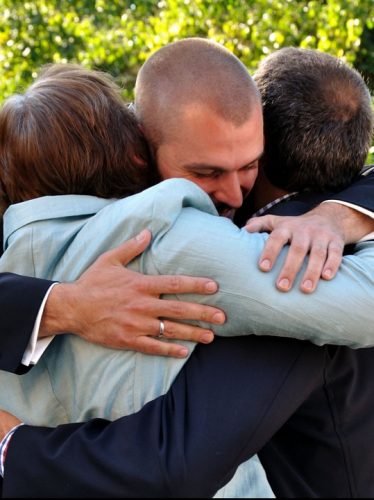With this in mind I thought I’d share “The Mum Phone Contract” with you. This is aimed at teenagers, but there is some timely wisdom here for adults too:
1. It is my phone. I bought it. I pay for it. I am loaning it to you. Aren't I the greatest?
2. I will always know the password.
3. If it rings, answer it. It is a phone. Say hello, use your manners. Do not ever ignore a phone call if the screen reads "Mum" or "Dad". Not ever.
4. Hand the phone to one of your parents promptly at 7:30pm every school night and every weekend night at 9:00pm. It will be shut off for the night and turned on again at 7:30am. If you would not make a call to someone's landline, wherein their parents may answer first, then do not call or text. Listen to those instincts and respect other families like we would like to be respected.
5. It does not go to school with you. Have a conversation with the people you text in person. It's a life skill.
6. If it falls into the toilet, smashes on the ground, or vanishes into thin air, you are responsible for the replacement costs or repairs.
7. Do not use this technology to lie to, fool, or deceive another human being. Do not involve yourself in conversations that are hurtful to others. Be a good friend first or stay the hell out of the crossfire.
8. Do not text, email, or say anything through this device you would not say in person.
9. No porn.
10. Turn it off, silence it, or put it away in public. Especially in a restaurant, at the movies, or while speaking with another human being. You are not a rude person; do not allow the iPhone to change that.
11. Do not send or receive pictures of your private parts or anyone else's private parts. Don't laugh. Someday you will be tempted to do this despite your high intelligence. It is risky and could ruin your teenage/college/adult life. It is always a bad idea. Cyberspace is vast and more powerful than you. And it is hard to make anything of this magnitude disappear — including a bad reputation.
12. Don't take a zillion pictures and videos. There is no need to document everything. Live your experiences. They will be stored in your memory for eternity.
13. Leave your phone home sometimes and feel safe and secure in that decision. It is not alive or an extension of you. Learn to live without it. Be bigger and more powerful than FOMO – fear of missing out.
14. Download music that is new or classic or different than the millions of your peers that listen to the same exact stuff. Your generation has access to music like never before in history. Take advantage of that gift. Expand your horizons.
15. Play a game with words or puzzles or brainteasers every now and then.
16. Keep your eyes up. See the world happening around you. Stare out a window. Listen to the birds. Take a walk. Talk to a stranger. Wonder without Googling.
17. You will mess up. I will take away your phone. We will sit down and talk about it. We will start over again. You and I, we are always learning. I am on your team. We are in this together.
Now, there’s some wise advice. Now, where’s my iPhone?



